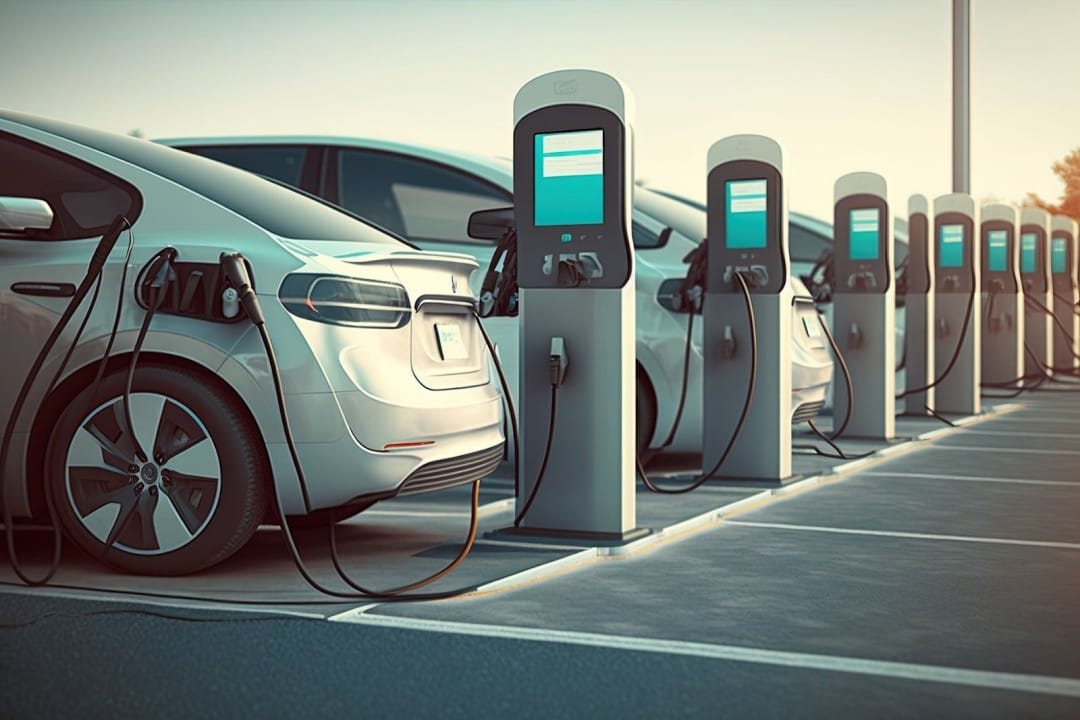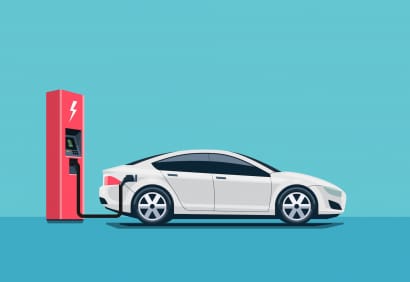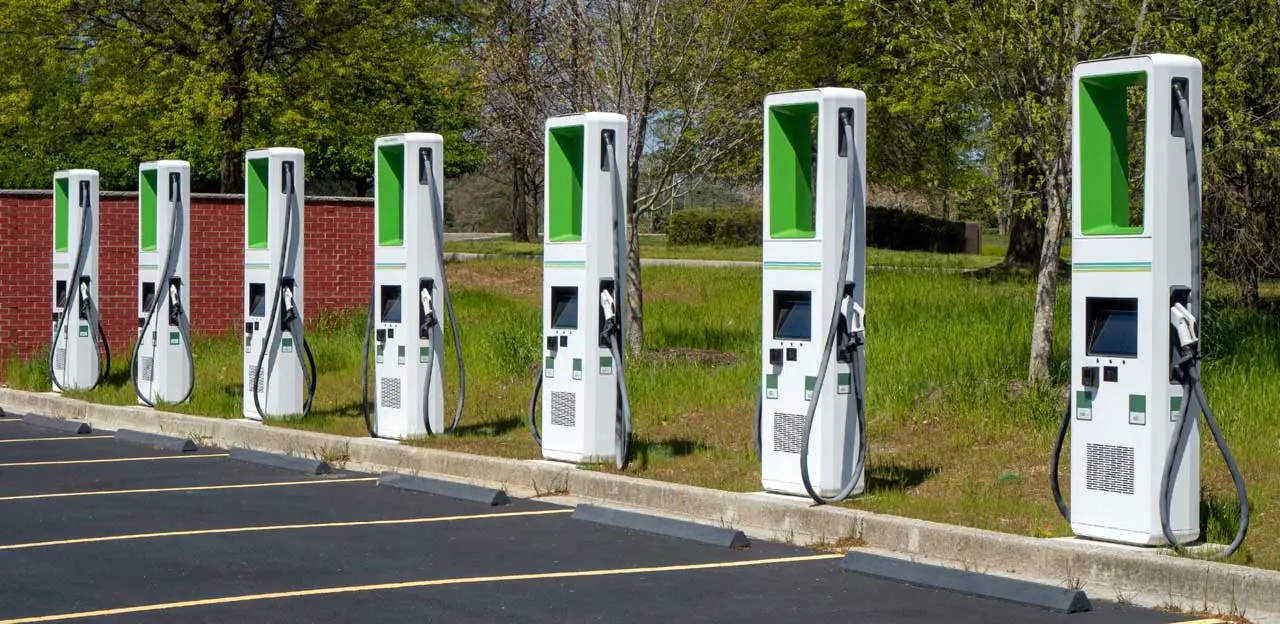Trump Revokes Biden’s 50% EV Target and Freezes Charging Funds: What It Means for America.


In a bold move to reshape America’s energy and transportation policies, President Donald Trump has announced the immediate revocation of the 50% electric vehicle (EV) sales target set by the Biden administration.
Additionally, Trump has frozen unspent federal funds to expand the nation’s EV charging infrastructure.
These actions signal a dramatic shift in federal policy, prioritizing consumer choice, energy independence, and economic growth over government-driven electrification efforts.
The 50% EV Target: A Look Back
Under the Biden administration, the 50% EV sales target was a cornerstone of its climate and energy agenda.
Introduced in 2021, the target aimed to ensure that half of all new vehicles sold in the U.S. would be electric by 2030.
This ambitious goal was accompanied by billions of dollars in incentives for automakers, subsidies for EV buyers, and funding to build a nationwide network of EV chargers.
The plan was touted to reduce greenhouse gas emissions, combat climate change, and secure America’s leadership in the global EV market.
However, critics argued that the policy ignored key challenges, including the high cost of EVs, the limited availability of critical minerals like lithium, and the strain on the electric grid.
Many also questioned the fairness of using taxpayer dollars to subsidize EV adoption, which primarily benefits wealthier consumers.
Trump’s Policy Reversal
In his statement announcing the policy changes, President Trump criticized the 50% EV target as "a reckless experiment" that threatens America’s economy and energy security.
He argued that the policy disproportionately benefited foreign manufacturers and wealthy elites while leaving middle-class Americans to shoulder the cost.
"America is a land of opportunity and choice, not government mandates," Trump said. "We will not force hard-working Americans to buy expensive electric cars they don’t want or can’t afford. Our auto industry deserves to thrive without being shackled by bureaucratic overreach."
By revoking the EV target, Trump has effectively removed federal pressure on automakers to transition their fleets to electric vehicles.
Automakers will now have greater freedom to produce the vehicles they believe consumers want, whether that means gas-powered trucks, hybrids, or EVs.

Freezing EV Charging Funds
Trump’s decision to freeze unspent federal funds for EV charging infrastructure is another significant policy shift.
These funds, part of Biden’s $7.5 billion initiative to build a nationwide network of 500,000 chargers by 2030, were intended to address one of the biggest barriers to EV adoption: range anxiety.
Critics of the charging network plan have raised concerns about inefficiency, waste, and the uneven distribution of chargers, with rural areas often overlooked.
Trump’s freeze will halt further spending until a full audit of the program is conducted.
According to Trump, the pause will ensure that taxpayer dollars are not wasted on projects that do not serve the broader public interest.
"We’re not going to waste billions of dollars building chargers that sit empty while American families struggle to make ends meet," Trump stated. "Instead, we will focus on energy solutions that work for everyone."
What Does This Mean for Automakers?
Trump’s policy changes will have significant implications for the auto industry.
Under Biden’s target, automakers were ramping up investments in EV production, with many announcing plans to phase out internal combustion engine (ICE) vehicles entirely.
Trump’s reversal provides automakers with the flexibility to slow their transition to EVs and focus on the vehicles that are most profitable and in demand.
Some automakers, particularly those with strong EV strategies, may continue their push toward electrification to remain competitive globally.
However, others may shift resources back to ICE vehicles, hybrids, or alternative technologies like hydrogen fuel cells.

Implications for Consumers
For consumers, Trump’s actions are likely to have mixed effects.
On one hand, they may benefit from a wider range of vehicle options and lower prices, as automakers are no longer compelled to meet costly EV mandates.
On the other hand, the freeze on charging infrastructure funds could slow the expansion of EV charging networks, potentially deterring some buyers from considering electric vehicles.
Additionally, Trump’s policies may lead to lower federal incentives for EV buyers, making EVs less affordable for middle-class Americans.
However, supporters of the policy argue that this will prevent taxpayer dollars from subsidizing luxury vehicles for wealthier individuals.
The Energy Independence Argument
A key component of Trump’s justification for these changes is his commitment to energy independence.
He has criticized the EV push for increasing America’s reliance on foreign nations for critical materials like lithium, cobalt, and rare earth metals, which are essential for EV batteries.
Many of these materials are sourced from countries with poor labor and environmental standards, raising ethical and strategic concerns.
By revoking the EV target, Trump aims to reduce this reliance and bolster domestic energy production. "We have abundant resources here at home—oil, gas, coal—that can power our economy and create American jobs," Trump said. "We don’t need to depend on China or any other nation to keep our country moving."
Environmental Concerns
Unsurprisingly, Trump’s actions have drawn sharp criticism from environmental groups, who argue that they will set back efforts to combat climate change.
The transportation sector is the largest source of greenhouse gas emissions in the U.S., and transitioning to EVs is seen as a key strategy for reducing those emissions.
By reversing course, Trump risks alienating environmental advocates and younger voters who prioritize climate action.
Conclusion
Trump’s decision to revoke Biden’s 50% EV target and freeze unspent charging funds represents a dramatic shift in America’s energy and transportation policy.
While supporters applaud the move as a victory for consumer choice, economic freedom, and energy independence, critics warn that it could undermine progress toward a cleaner, greener future.
As the nation grapples with these changes, one thing is clear: the debate over America’s energy future is far from over.
Video by Daily Wire




